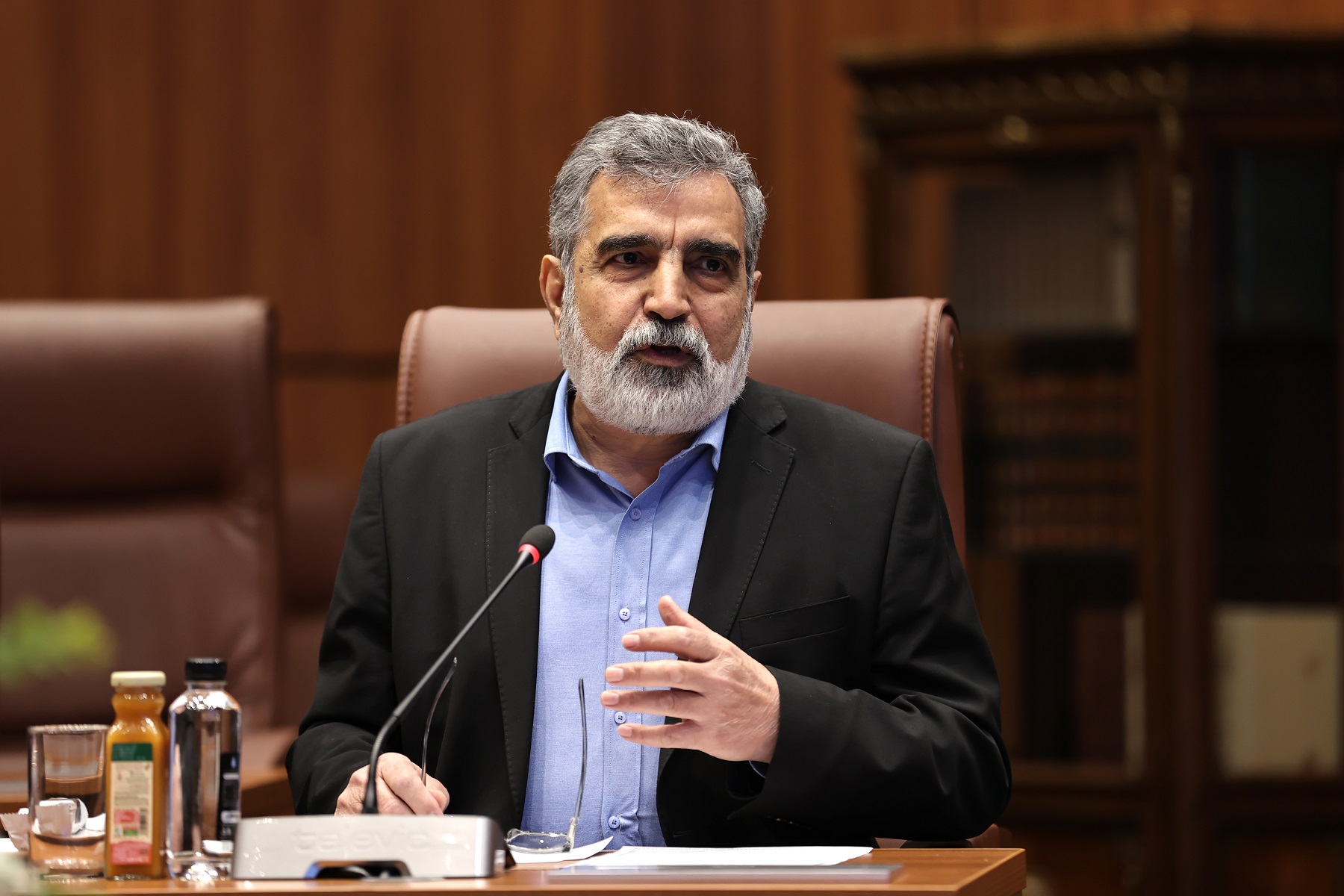BAKU, Azerbaijan, May 7. Iran cannot solely rely on fossil energy sources like oil for its energy supply, Deputy Head of Atomic Energy Organization (AEOI) of Iran, Behrouz Kamalvandi, said during an exhibition on the country's achievements in the nuclear industry in Tehran on May 6, Trend reports.
According to him, there are differences between nuclear and oil energy; long-term use of nuclear energy does not pollute the environment, and based on this, every country has the right to benefit from nuclear energy and technology.
Kamalvandi mentioned that Iran operates within the framework of international obligations such as the Treaty on the Non-Proliferation of Nuclear Weapons (NPT) and is committed to these obligations. According to the laws and regulations of the IAEA, Iran has the right to possess nuclear technology for peaceful purposes. Using nuclear technology for peaceful purposes without any discrimination is Iran's priority.
In response to US Secretary of State Marco Rubio's statement that Iran is the only country without nuclear weapons that enriches uranium, Kamalvandi pointed out that this issue needs clarification. Countries such as the Netherlands, Belgium, South Korea, Brazil, and Japan also enrich uranium without nuclear weapons.
"Iran has spent time cooperating with the International Atomic Energy Agency and ensuring transparency in its activities. IAEA inspectors have maximally monitored Iran's nuclear activities and facilities, and continue to do so. These actions demonstrate that Iran's nuclear program is for peaceful purposes," the Iranian official added.
Meanwhile, US President Donald Trump has recently stated that Iran has rich energy resources
On January 16, 2016, the JCPOA came into force between Iran and the P5+1 group (US, Russia, China, the UK, France, and Germany) regarding Iran’s nuclear program. However, on May 8, 2018, the US withdrew from the Joint Comprehensive Plan of Action (JCPOA) between Iran and the 5+1 group (Russia, China, the UK, France, the US, and Germany) and imposed new sanctions on Iran starting from November 2018
By the end of 2020, the Iranian parliament decided to pursue a strategic plan in the nuclear sector to counter the sanctions, leading to a suspension of additional steps and the Additional Protocol as per the nuclear agreement.
Consequently, the International Atomic Energy Agency (IAEA) faced a reduction in monitoring capabilities by 20–30 percent.
Iran has officially affirmed that its strategy is not to pursue the development of an atomic bomb and that it does not support the production of weapons of mass destruction.
Stay up-to-date with more news on Trend News Agency's WhatsApp channel







